From Crain’s Chicago Business
Every Thursday in Chicago Comes Back, Emily Drake and Todd Connor provide resilient leadership insights to help your business move forward as we emerge from the pandemic. Drake and Connor facilitate Crain’s Leadership Academy. Drake is a licensed therapist, owner of the Collective Academy and a leadership coach. Connor is the founder of Bunker Labs and the Collective Academy and is also a leadership consultant.
Todd Connor: It’s a disorienting time, to say the least. The economic forecasts and the stock market are incredibly optimistic, while wealth inequality continues to grow and too many are unemployed. The vaccine rollout in the U.S. is one of the best in the world, even as we cross the sobering threshold of having lost 500,000 lives. The devastation is real, and also easy to ignore in some ways, as people are increasingly isolated, with some dying alone or only in the company of health care workers. We are connected virtually and also suffering from being alone. There are versions of divergent truths that are being held at the same time and without irony. And that is not even including our polarized politics.
Emily Drake: It is disorienting. And it’s overwhelming. I’ll add another tension, which is that we can be so consumed by national news or globalization, and yet forget about our very immediate community around us: the elderly woman next door, the local business on the corner or the kids in the next room. What we know about pandemics is that they change the way we live, permanently. Nicholas Christakis gives a great perspective of this in his book, “Apollo’s Arrow,” about how the coronavirus will change the way we live—from small things, like normalizing mask wearing, to more substantial changes, like challenging an economic model that has under-recognized and under-paid essential workers.
TC: The way in which we operate will indeed be different. I think for managers, the obvious question is whether we will return to the office or continue to work remotely. The answer is likely a blend—everything from hybrid, to liquid, as we talked about in last week’s column. But more interesting and impactful questions, I think, will surround the economic model. Too many feel left behind, which plays out in our politics, as well, and the question for those with power will be how they choose to bring others along. The pandemic encourages existential questions. Yuval Noah Harari predicts that just as mass industrialization created the working class, the AI revolution may create a new “unworking” class. While we know the pain of being over-worked, there are profound societal implications to a collective disengagement from work, as well, even if people are economically provided for. On the upside, post-pandemic periods also can foster great periods of joie de vivre, artistic renaissance and risk taking.
ED: As we’ve said throughout this season, there’s nuance. And new points of view are emerging, and sometimes even refreshing. The Illinois Coalition of Independent Work is one such point of view emerging after listening to app-based workers—delivery drivers, babysitters, or landlords—a category unlike anything we would have seen 20 years ago. Recently, Jaime di Paulo, president and CEO of the Illinois Hispanic Chamber of Commerce, shared with us:
“Even before the pandemic began, we were seeing the need for people to be able to make money around their lives—so they could go to school, take care of family or save for something big. And in the pandemic, these app-based platforms are proving to be a critical source of additional income for Black and Brown people whose economic livelihoods have been disproportionately impacted by COVID-19. We need to create more of these jobs, and ensure we’re protecting the independence and flexibility workers need. As we think about the future of work, we must consider how the definition of work will continue to evolve, and app-based work is part of that evolution.”
TC: Whether you agree with di Paulo or not, it is a point of view. And businesses are increasingly expected to take a stance on issues involving wealth inequality, or technology, or politics, for that matter. This may not be a welcome development, but that discomfort is exactly what’s required to see if you really live, work and lead guided by your stated corporate values. That Fortune 500 companies pulled contributions for elected officials who challenged the legal and fair results of the 2020 presidential election is an example of what’s possible. Maybe even necessary?
ED: It remains to be seen, but I think the discomfort is exciting. Leaders have such an opportunity to start a future-focused conversation with their teams, inviting perspectives and points of view—so long as they are respectful and avoid singling anyone out. Create a space for dialogue and ask questions like: “What will our industry look like?”; “How will community be redefined?”; “What has this time taught us?”; “What role will space and in-person connection play?”; “What impact could AI have?” These are big questions, but your colleagues might appreciate the chance to be considered as thought leaders. Especially when we so seldom have time to think and imagine right now.

